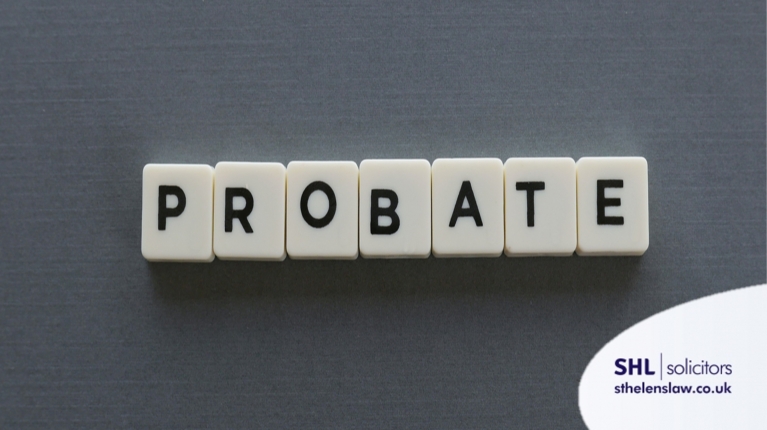Talking about wills and probate is something that no one really wants to do, we understand. After all, it involves the recently deceased, and if you’re tasked with these processes yourself, it’s likely that they will be someone that you were close to.
This time can be especially difficult emotionally, and the thought of the legal processes required during this time can prove exhausting. So that’s why the specialist team at St Helens Law are on hand to provide you with the expertise and sensible advice you may need in this challenging period.
Starting with this blog post, we’re here to tell you about the importance of probate and how you can benefit from an efficient, effective service that will see the legacy of the deceased last in the way they intended.
What is probate?
Before we specify its significance, it is first important to talk more about what exactly probate is. It is the legal process of dealing with the estate (money and property or assets) of someone who has died. Of course, the person may already have a will in place which states their intended way of distributing their possessions, with probate ensuring that this process is done correctly and to the letter of the law.
Probate can include collecting the assets and ensuring that they are ready to be distributed to the relevant parties. It also pays for any debts and taxes that the deceased may have.
Once this has been completed, the belongings can then be distributed in a way that was instructed by their will, or through intestacy if the person died without a will. This can be done by the ‘executor’ to who the person would have specifically allocated this position. This could be a close family member or friend, or a professional executor.
Why is it important
So now we know a little more about the probate process, why exactly is it so important in legal terms?
It’s crucial in ensuring that the will is distributed in a way that is orderly and correct. Often, during this time of emotional difficulty, all those close to the deceased are on the same page. But on occasion, disagreements can emerge, and without legal intervention, things could get out of hand.
The process of probate decides who has the legal authority to deal with the estate that has been left, putting the deceased’s best interests at the forefront of every action taken.
It ties up any ‘loose ends’ that could appear, giving those close to the person who has passed closure that all of the wishes made through their will have been met, ensuring everyone can start to move on in a way that suits them.
Is probate always needed?
As important as it may be, there are a few occasions in which probate may not be needed. These are if the deceased joint owns their assets, property and/or bank account with someone else. If the person dies while in joint ownership of these assets, then sole ownership will simply be passed to the other owner. To do so, the co-owner will have to provide the death certificate and a form of identification so this can formally take place.
Probate also will not be needed if the deceased is insolvent, with more debts and taxes and other expenses than assets, meaning that unfortunately none of their assets will be distributed as they are legally required to have been sold off to pay for these expenses.
Contact St Helens Law
Would you like to ensure a smooth probate process for those closest to you when the time comes? You may want to consider our will writing service in St Helens to make sure that you produce a document that you are happy with.
To get in touch regarding making a will in St Helens or any other aspect of our service, be sure to give our team a call on 01744 742360 or email us at info@sthelenslaw.co.uk. You can also get in touch via our online enquiry form, where you can request a FREE 30 minute consultation with one of our experts today.


